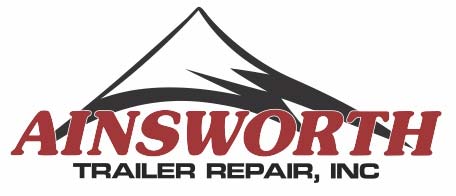
Trailer bearing maintenance has recently gotten more complicated, with the introduction of hybrid lubrication products to the market. Which is best for keeping your hauler running smoothly? Let’s take a look at the evolution, performance, and maintenance needs of today’s trailer bearing lubrication options…
Which Hub’s for You? Advantages & Disadvantages of Trailer Hub Systems
- Grease-filled Hubs
The Low-Down: The old standby for hub lubrication, grease-filled hubs are commonly found on boat trailers.
Advantages: Thick and viscous, grease stays where you put it, requiring only periodic renewing.
Disadvantages: Grease-filled hubs don’t allow for the inspection of grease quantity and quality without disassembly.
Maintenance Needs: Grease-filled hubs require removing, repacking, and reassembling each 3,000-4,000 miles (or annually if your trailer sees minimal use), as bearing wear-and-tear is set into motion upon contact with moisture. Because of this, hub additions called bearing protectors (such as Bearing Buddy) are often incorporated to aid in the prevention of water intrusion and corrosion, holding a small reservoir of grease within the hub that is released under pressure/submersion to prevent water intruding. - Oil-filled Hubs
The Low-Down: Most commonly found on trailers hauling tournament fishing boats, as well as those that frequently travel long distances, oil-filled hubs provide less resistance, and thus greater efficiency while towing.
Advantages: Oil-filled hubs have a longer service and maintenance interval, allowing up to 40,000 miles between oil changes. They also allow you to easily monitor the condition of bearings, oil quality, and whether the hubs are filled or lacking via clear plastic caps on the ends of each hub.
Disadvantages: The plastic caps are weak, and if you clip another trailer or the dock while parking or loading/unloading, your trip is over. Once the oil leaks out of the hub, bearings will cease functioning pretty fast – especially on highways. Oil-filled hubs are also more prone to moisture penetration, as hubs are typically only filled halfway. Because of this, frequent rotation – via trailer use or manually spinning trailer wheels every few weeks – is necessary to prevent corrosion to bearings above the fill line. - Hybrid Hubs
The Low-Down: Hybrid hubs provide the best of both forms of lubrication: Grease and oil.
Advantages: Promising years of maintenance-free operation, hybrid systems (such as The Vault) offer a pressurized, oil-filled hub with a unique lube combination that thins out to the viscosity of oil at operating temperatures, yet maintains the viscosity of grease at normal temperatures. No maintenance is advised for 5 years, and hybrid products typically come with a 10-year warranty.
Disadvantages: Obviously, hybrid hubs require a specific type of lubricant, which is more costly. In addition, to safeguard the warranty of most brands, you are wise to have ANY bearing service or adjustment completed at a licensed, trusted shop.
Considering a Switch?
The pros at Ainsworth Trailer Repair have experience with all types of bearing lubrication systems and accessories. To learn more about which lube may be best for you hauler, or to schedule a fast, affordable swap, contact us and schedule a free estimate today.



